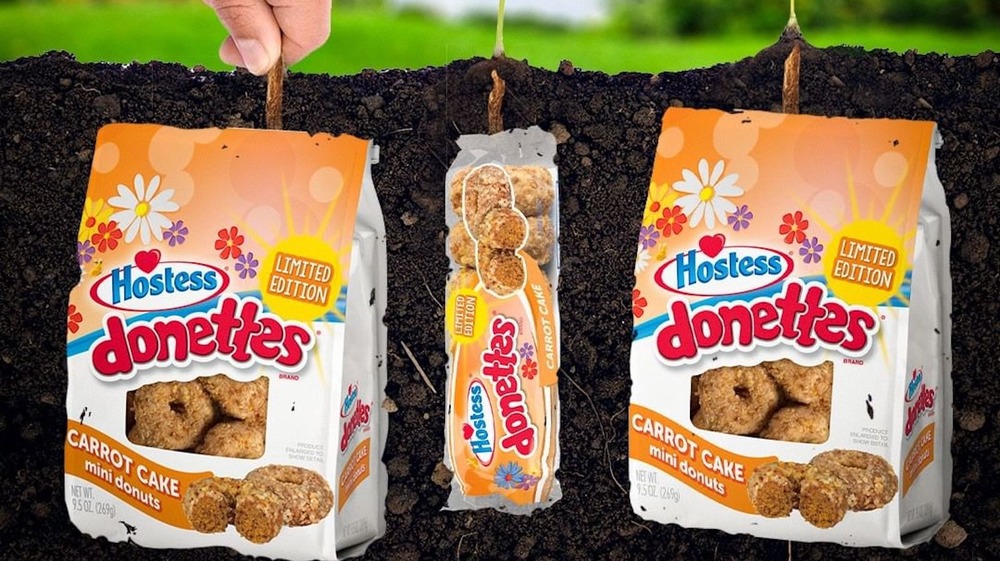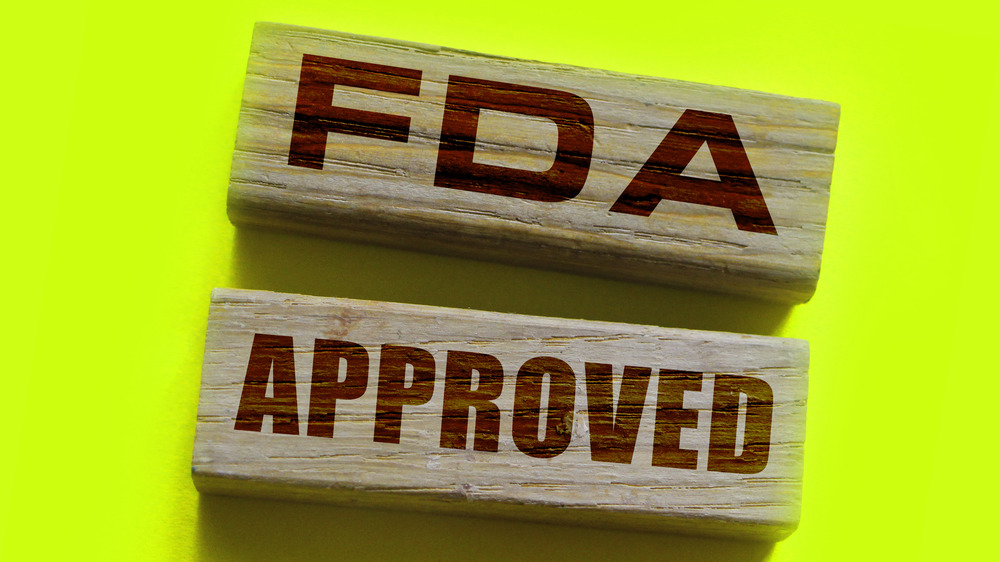The Shocking Reason Hostess Is Being Sued Over Its Carrot Cake Mini-Donuts
On Feb. 22, the false advertising lawsuit with which Hostess has been wrangling was dropped, according to Law 360. The cause of the class action lawsuit was Hostess' limited edition offering of Hostess Donettes Carrot Cake Mini Donuts, which you can still see out of stock on Walmart's website.
The issue Elena Lauchung-Nacarino had with them, as Top Class Action summarized in December when Hostess filed a motion to dismiss the case, was that the carrot cake donuts lacked carrots. Hostess' argument was that by calling the product carrot cake mini donuts and not simply carrot cake, they made it clear that they were referring to the carrot cake flavor, not the dessert. Furthermore, Hostess included a list of ingredients, which did not claim to contain carrots, and it did not mislead the plaintiff by decorating the packaging with carrot imagery.
Evidently, unlike the graham cracker lawsuit thrown at Whole Foods, the judge found the argument for dismissal compelling.
The FDA is quite clear in its food label guidelines
One would assume that somewhere the FDA has rules for what foods legally can and cannot say or display on their packaging. In doing so, one would be right because under the consumer's orientated section of their government website, the FDA has an article titled "What's in a Name? What Every Consumer Should Know About Foods and Flavors" that covers the very issue raised by the carrot-less carrot cakes Hostess makes.
Products, they explain, can have the name of a food, "food-flavored," or an admission of "artificially food-flavored" on the box without containing the real food in question. It merely needs the flavor. To determine whether the food ingredient you expect in the product is present, you must either see it in the list of ingredients or find that the company has voluntarily written "made with 100 percent real food" on it.
Although in certain cases, like butter cookies, the product needs to contain 100 percent butter to earn the name. Furthermore, if the box says "natural and artificial flavors," we read it as the original flavor source is not present, though, logically, "and" means it is. Why this distinction? The FDA does not say.
Now, while we may or may not sympathize with the plaintiff's complaint that the Hostess donuts contained no carrots, it is clear from the FDA's rules that Hostess fulfilled its obligations to the letter. Perhaps, however, we should insist on stricter rules in the future.

